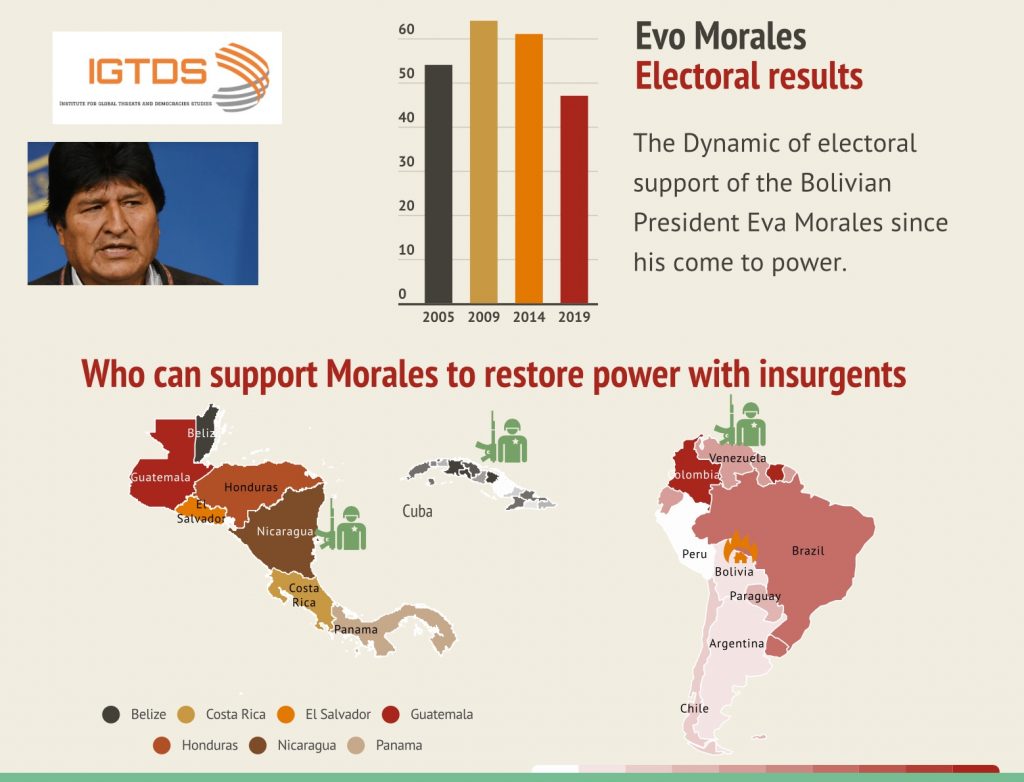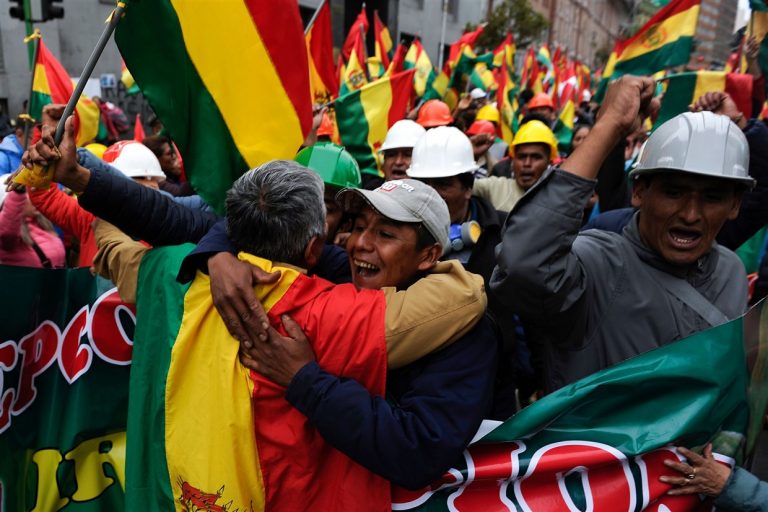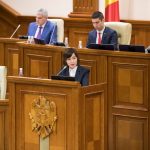The situation in Bolivia could turn into an armed confrontation involving foreign countries beyond the region.
There has been a change of power in Bolivia. President Evo Morales, amid the pressure from the opposition, the military and the international community, resigned after 20 days of domestic protests. Along with the president, almost all the representatives of the country’s top elite resigned immediately: the vice-president, the heads of both chambers of the parliament, ministers and their deputies, governors of the regions, members of the Central Election Commission. In less than a day, the country lost control as the entire vertical of the ruling political movement, the Movement for Socialism, had gone from power.
The second vice-speaker of the Senate, oppositionist Jeanine Agnes (Democratic Unity Party), became the formal head of the country. On November 11, Agnes is scheduled to hold an extraordinary session of the parliament to accept the resignations of the former government’s top officials and to assign a date for the new presidential vote. Agnes is the wife of the leader of Colombia’s Conservative Party, an ally of former President Uribe and his paramilitaries.
The real power will belong to the military, led by General Williams Kaliman Romero, the actual head of the coup. He has ties to the United States, established back in 2013-2016 when he was a Bolivian military attaché in Washington. He is also known for his fight against coca cultivation in the country that is inconsistent with President Morales’ course of coming to power based on rural coca growers.
The official reason for the fall of Evo Morales is the falsification of votes in the October elections. The facts of vote-counting have been established by oppositionists and observers of the Organization of American States (OAS) audit mission.
In order to win the first round, a candidate in Bolivia must gain more than 40% of the vote, provided that the breakaway from the nearest opponent is more than 10%. Morales is supported by more people than Mesa, but he has gained only 0.14% votes above the required minimum. This casts doubt on his victory. According to the exit polls, the gap between Mesa and Morales does not reach 10%. Therefore, the likelihood of vote manipulation is high.
The political crisis in Bolivia was not just caused by political reasons, it has also a geostrategic dimension. Russia’s influence in the country has recently increased. The left-wing government of Evo Morales began to flirt with Moscow, just as Hugo Chavez’s and Nicolas Maduro’s governments did in Venezuela.
Evo Morales is known to have taken off in a private jet in Mexico for asylum. Meanwhile, several thousand Morales’ supporters marched in La Paz shouting “Ahora si guerra civilian!” (Now yes, civil war!). Given the size of Morales’ electoral support, with the support of his political force MAS from outside militants and paramilitaries of Cuba and Venezuela, the situation in the country could turn into an armed resistance against the military. Morales is quite possible to aggravate the situation in the country.

Destabilization in Bolivia will affect the global lithium market.
Uyuni is the largest salt flat in the world with an area of 10500 square km. It contains from 50 to 70% of the world’s proven lithium reserves, i.e. over 100 million tons. Lithium is used in battery production. The price of metal tends to increase: if in 1998 one ton of lithium cost up to $ 2,000, now the price exceeds $ 20,000. The United States and the Sino-Russian consortium are interested in the development of Bolivian lithium deposits.




